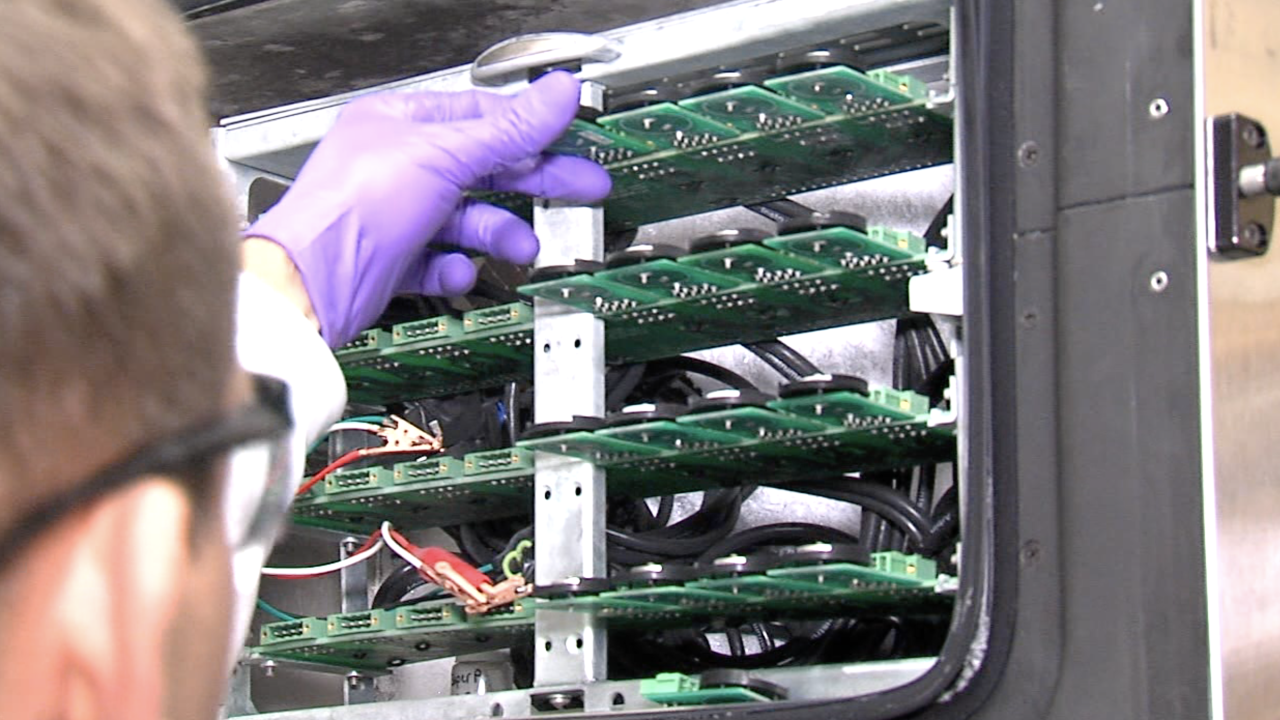WEST LAFAYETTE — Purdue University researchers are working to make your gadgets and gizmos run more efficiently.
They're using sodium carbonate, which is really similar to the table salt we use every day, to make batteries that can power things like our key fobs, golf carts and even our homes.
“So these are the coin type of cells. We make hundreds of them daily and we do have the capability to charge and discharge up to 200 daily,” Vilas Pol, a professor of chemical engineering at Purdue, said.
They are testing these batteries to see if sodium carbonate can be a good substitute for lithium batteries.
“This is a big thing and it’s going to become bigger as we are running out of lithium in the world,” Pol said. "We need something in between that has reliable energy density."
For years, Pol has been working to find an alternative to lithium batteries. Pol said sodium carbonate is 1.000 times more abundant and it’s inexpensive compared to lithium.
“We have sodium [and] salt everywhere on the Earth, any countries. For example, lithium is only available in a few countries; that includes Bolivia, Chile and a few others but sodium is everywhere, and it is inexpensive, and it will be there forever, so why don’t we use sodium instead of lithium?” Pol said.
He said per ton sodium costs $250, while lithium costs $7,000.
“Sodium ion batteries will be 20% cheaper than lithium ion batteries,” Pol said.
However, there is a downside to sodium carbonate batteries.
“The sodium element is three times heavier than lithium, so the battery would become slightly heavier,” Pol said.
While its similar to table, salt sodium carbonate is not safe for us to consume.
Researchers are hoping to one day use these batteries to power your home, your car and other items.
-

Seahawks’ stout defense preparing for Colts’ quarterback Philip Rivers
The Seattle Seahawks might not find out until Sunday whether Philip Rivers will take his first NFL snaps since 2020.
Caitlin Clark returns to court after injury-filled season
The opening day of USA Basketball camp Friday was her first time playing competitively in nearly five months after the Indiana Fever All-Star missed most of the WNBA season with a variety of injuries.
Indiana's Fernando Mendoza wins Davey O'Brien Award
Indiana's Fernando Mendoza has won the Davey O'Brien Award as the nation's top quarterback, the second of what could be three major honors in as many days.
Current and future first responders train at Emergency Services Education Center
The center equips current and future firefighters with the skills, confidence and leadership they need to save lives.





